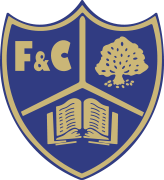Computing
Statement of Intent - Computing
All pupils at Fulwood and Cadley have the right to have rich, deep learning experiences that balance all the aspects of computing. With technology playing such a significant role in society today, we believe ‘Computational thinking’ is a skill that children must be taught if they are to be able to participate effectively and safely in this digital world and we understand that computer technology is an essential resource for supporting teaching and learning. The internet, and other digital and information technologies, open up opportunities for pupils and play an important role in their everyday lives.
Our aim is to ensure that children become digitally literate so that they are able to express themselves and develop their ideas through information and computer technology– at a level suitable for the future workplace and as active participants in a digital world.
We teach a curriculum that enables children to become effective users of technology who can:
- Understand and apply the essential principles and concepts of Computer Science, including logic, algorithms and data representation.
- Analyse problems in computational term, and have repeated practical experience of writing computer programs in order to solve such problems.
- Evaluate and apply information technology analytically to solve problems.
- Communicate ideas well by utilising appliances and devices throughout all areas of the curriculum.
We are committed to making children masters of technology and giving them the tools needed to embrace the benefits of technology throughout their lives.
Progression of Knowledge and Skills
Whole School Curriculum Map - Computing
Early Years Foundation Stage planning
Computing Subject Policy Summary
In-depth policy available upon request.
